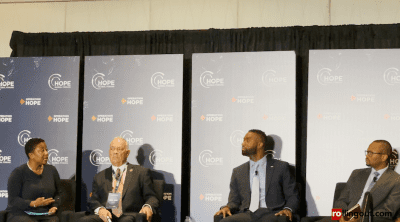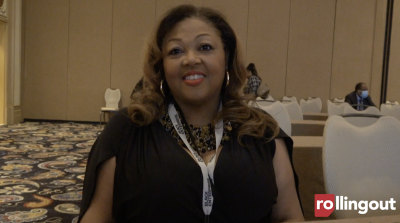
Make Sure you Know the Facts from Myths when Seeking to Own Home
June is National Homeownership Month. According to blackdemographics.com, as of 2012 42.5 percent of African Americans own their homes, in comparison to 63.9 percent of all races who are homeowners. Yet, African Americans outpace other races in renting — 57.5 percent (African Americans) vs. 36.1 percent (all races).
You want to own your own home, but you’ve heard it’s tough to get a loan. You assume you don’t have enough saved for a down payment, or your credit score or income isn’t high enough. So you put off applying, or you close the door on ever buying a home.
Sound familiar?
Many Americans say they want to be homeowners, according to Wells Fargo’s “How America Views Homeownership” survey. But many people may be holding back because of some persistent myths about what it takes to qualify for a loan.
If you’re one of those people, you may be closer to homeownership than you think. Here are some common myths about homebuying, and the truth behind them.
Myth #1: I need a perfect credit score to buy a home, or I need more credit history.
If you think this, you’re not alone. In our survey, nearly two-thirds of people believe they need a very good credit score to buy a home, with one-third thinking a “good credit score” is over 780. The truth is that a score of over 780 is generally considered “excellent,” and over 660 is generally considered “good.”
There are financing programs available for homebuyers with a range of credit scores, or limited credit history. Some programs allow you to use rent, mobile phone or utility payments to show credit history. The important thing to remember is that a lender looks at your entire financial picture, not just credit score – so find out what options you may have before excluding yourself.
Myth #2: I need a down payment of at least 20 percent.
This is a common misconception. In Wells Fargo’s survey, more than a third of people believe a 20-percent down payment is required. The belief was even more common among Hispanics (50 percent) and African Americans (48 percent).
In reality, you may have options. Some financing programs allow qualified homebuyers to put down as little as 3 percent. You may be allowed to use monetary gifts from family or friends for all or part of the down payment.
Despite a wide variety of loan options, almost a quarter of people in the survey say difficulty saving enough money for a down payment is a barrier to homeownership for them. But it could be less of a barrier than they think. A home mortgage consultant can walk you through your options.
Myth #3: I need to make more money to qualify for a mortgage.
Income is an important factor in qualifying for a home loan, but don’t assume it has to be high. Financing programs are available for a wide range of incomes. The key is demonstrating your ability to repay the loan. Lenders look at a variety of factors, including your income, assets, debt-to-income ratio, credit history, credit scores, and the amount of the loan compared to the value of the property.
If you want to buy a home but you assume you won’t qualify, it’s worth a closer look. A home mortgage consultant can discuss your specific situation and options you may have. Don’t rule yourself out before busting the myths and learning the facts.
By Cerita Battles, SVP, Head of Retail Diverse Segments, Wells Fargo Home Mortgage













